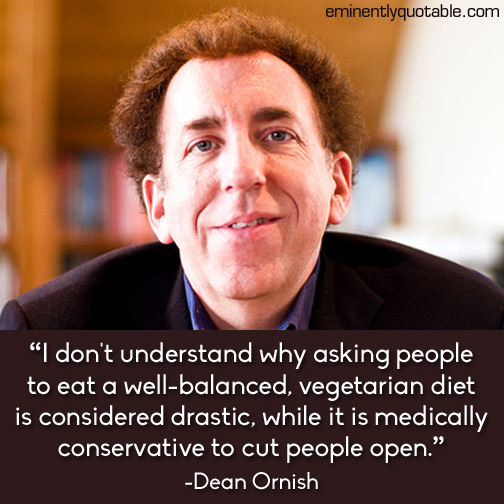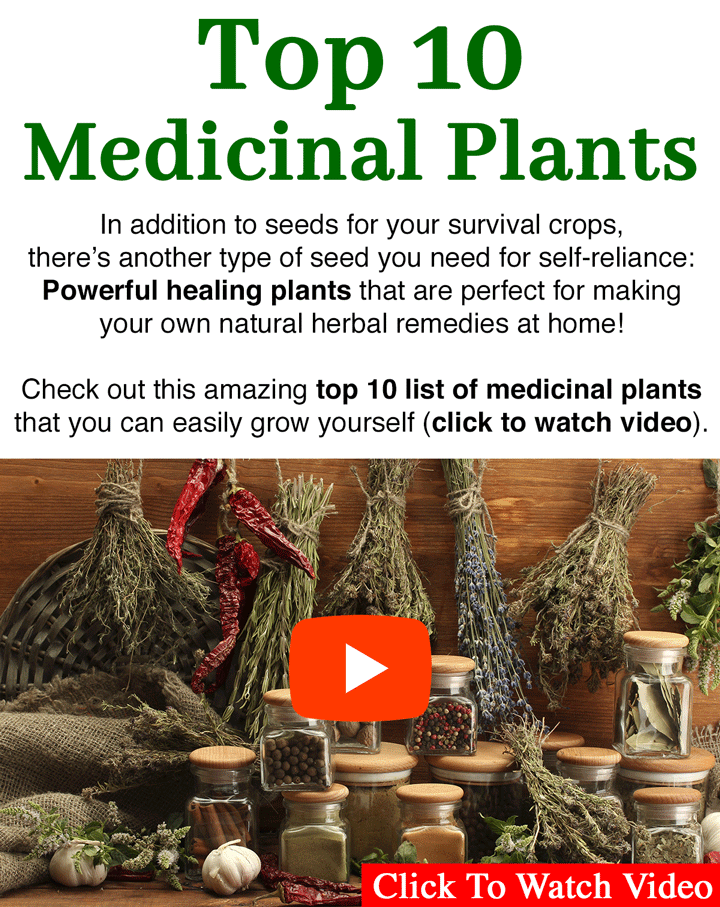
graphic © eminentlyquotable.com | photo – Wikipedia – lic. under CC-BY-2.0
“I don’t understand why asking people to eat a well-balanced, vegetarian diet is considered drastic, while it is medically conservative to cut people open.” – Dean Ornish
Dean Michael Ornish (1953 – present) is a physician, researcher, and author who is known for his work in the field of lifestyle medicine. He is the founder and president of the non-profit Preventive Medicine Research Institute, a non-profit that studies the effects of diet and lifestyle choices on health and disease. He is also a Clinical Professor of Medicine at the University of California, San Francisco and has been a pioneer in the field of lifestyle medicine for more than three decades. He is best known for his work on the effects of lifestyle changes, particularly a plant-based diet, on chronic diseases such as heart disease, cancer, and diabetes.
Ornish’s work has shown that lifestyle changes, such as eating a well-balanced, vegetarian diet, can be just as effective as conventional medical treatments in reversing chronic diseases. In fact, his research has shown that a plant-based diet can help to lower cholesterol and blood pressure, improve insulin sensitivity, and reduce the risk of heart disease and certain types of cancer.
However, despite the overwhelming evidence supporting the benefits of a plant-based diet, it is still not widely accepted by mainstream medicine. Many doctors and healthcare providers continue to rely on surgical interventions and medication to treat chronic diseases, rather than recommending lifestyle changes.
This quote also touches on the topic of preventative medicine and the importance of looking at the root causes of chronic diseases and addressing them before they progress. The conventional approach in medicine is often reactive, waiting for symptoms to appear and then intervening with drugs or surgery, rather than proactive – looking at the root causes of diseases and addressing them before they develop.
Ornish is best known for his “Eat More, Weigh Less” diet that focuses on vegetarianism, low in fat, oils, and simple carbohydrates to lose weight without feelings of deprivation and hunger. But it’s not just another diet fad; the goal is to control coronary artery disease and other chronic diseases through other well established lifestyle changes, like smoking cessation, moderate exercise, stress management techniques, and psychosocial support. He believes in a holistic perspective on preventive health.
According to his research with Elizabeth Blackburn, comprehensive lifestyle changes affect gene expression in only three months. His findings show that a healthy lifestyle turns on disease-preventing genes and turns off genes that promote cancer and heart disease, thereby increasing telomerase enzyme which delays the ageing process.
In contrast to other lifestyle consultants, Ornish does not implement a strict vegetarian diet. He recommends the consumption of fish oil supplements and allows for the consumption of occasional animal products.
Ornish was named as “one of the most interesting people of 1996”, “one of the 125 most extraordinary University of Texas alumni in the past 125 years”, and “one of the fifty most influential members of his generation.”
😳 What Tinnitus Does To Your Brain Cells (And How To Stop It)
After 47 years of studies and countless brain scans done on more than 2,400 tinnitus patients, scientists at the MIT Institute found that in a shocking 96% of cases, tinnitus was actually shrinking their brain cells.
As it turns out, tinnitus and brain health are strongly linked.
Even more interesting: The reason why top army officials are not deaf after decades of hearing machine guns, bombs going off and helicopter noises…
Is because they are using something called "the wire method", a simple protocol inspired by a classified surgery on deaf people from the 1950s...
★ How To Get Rid Of Nail Fungus:
★ Does Your Salad Contain This Vegetable?
★ Top 10 Most Valuable Medicinal Herbs:





